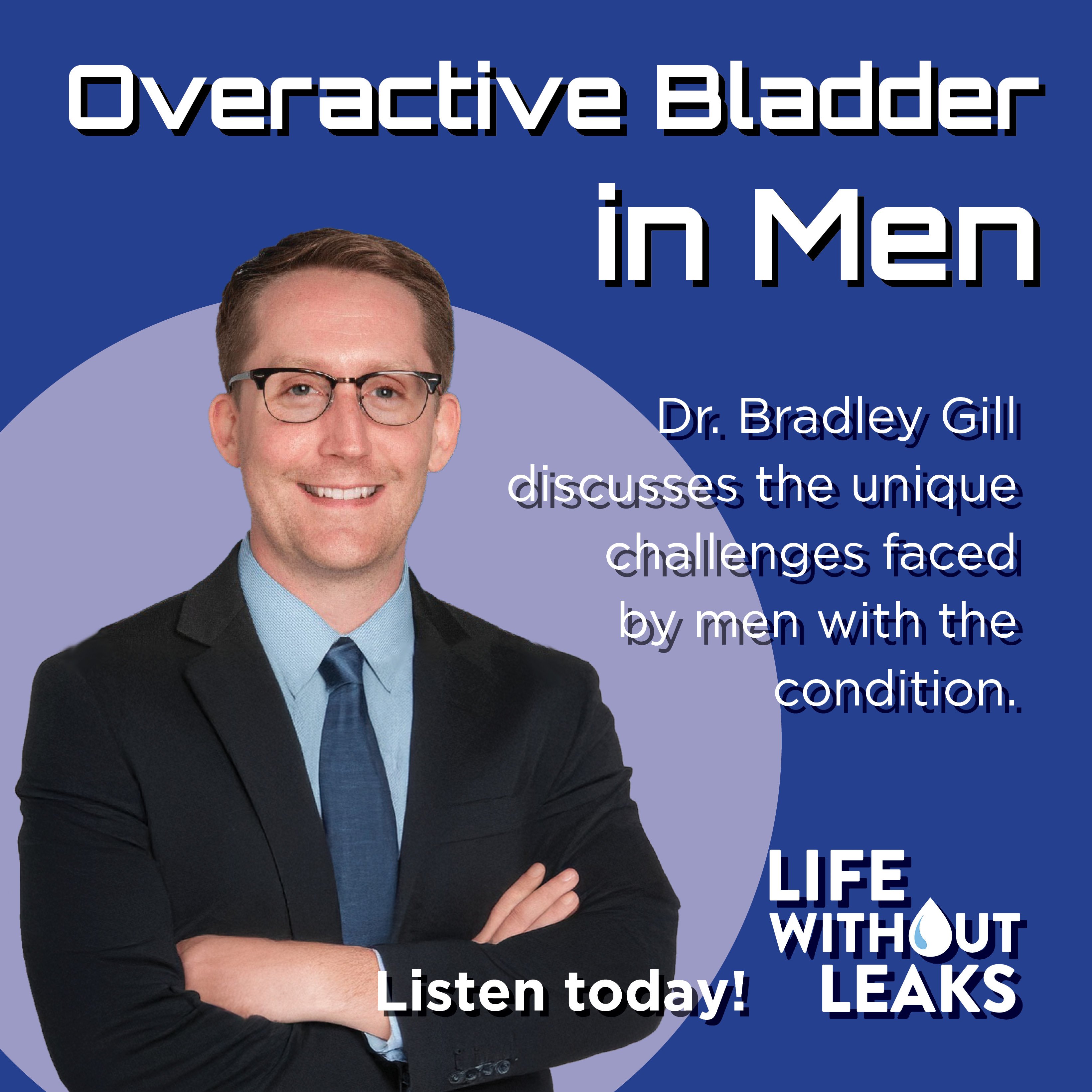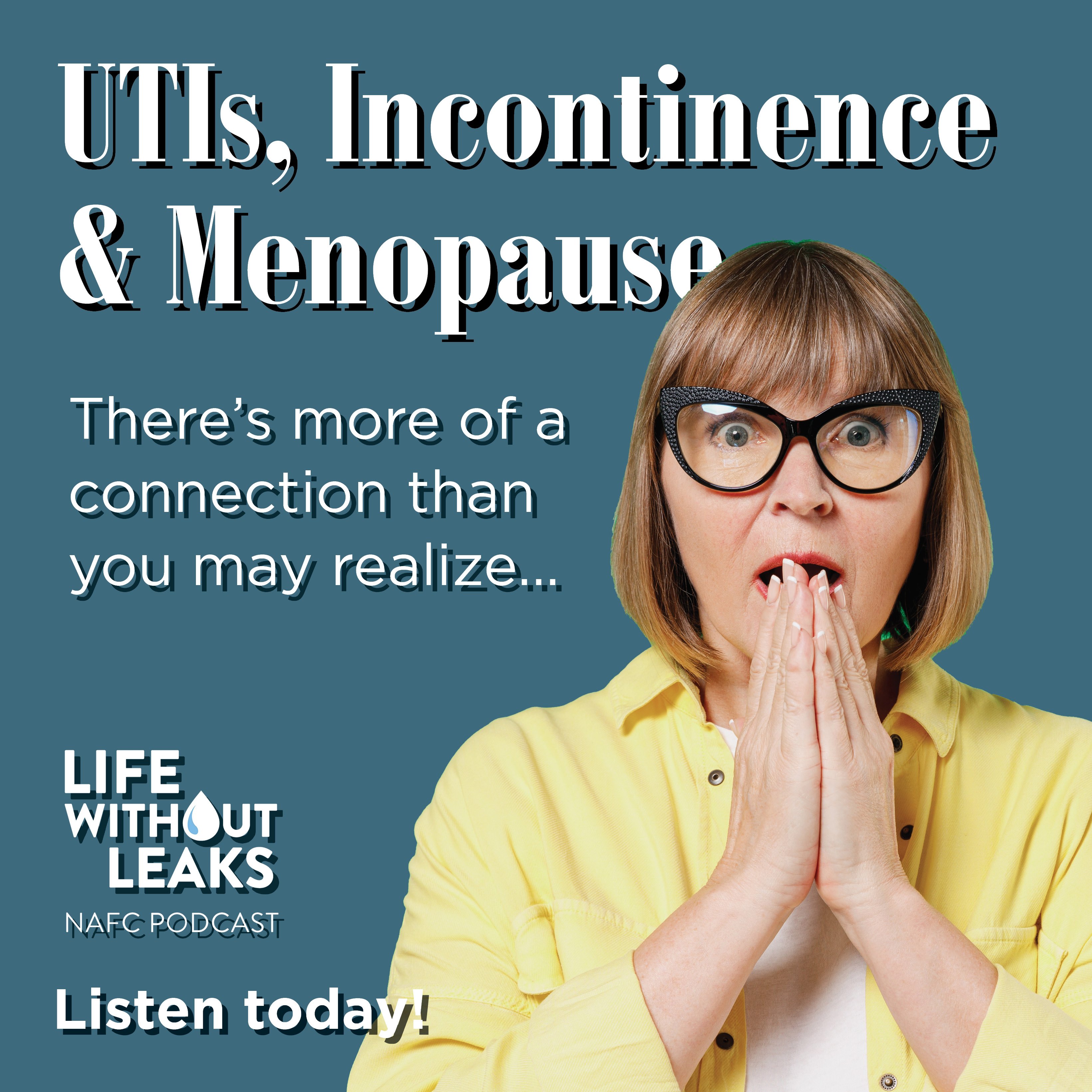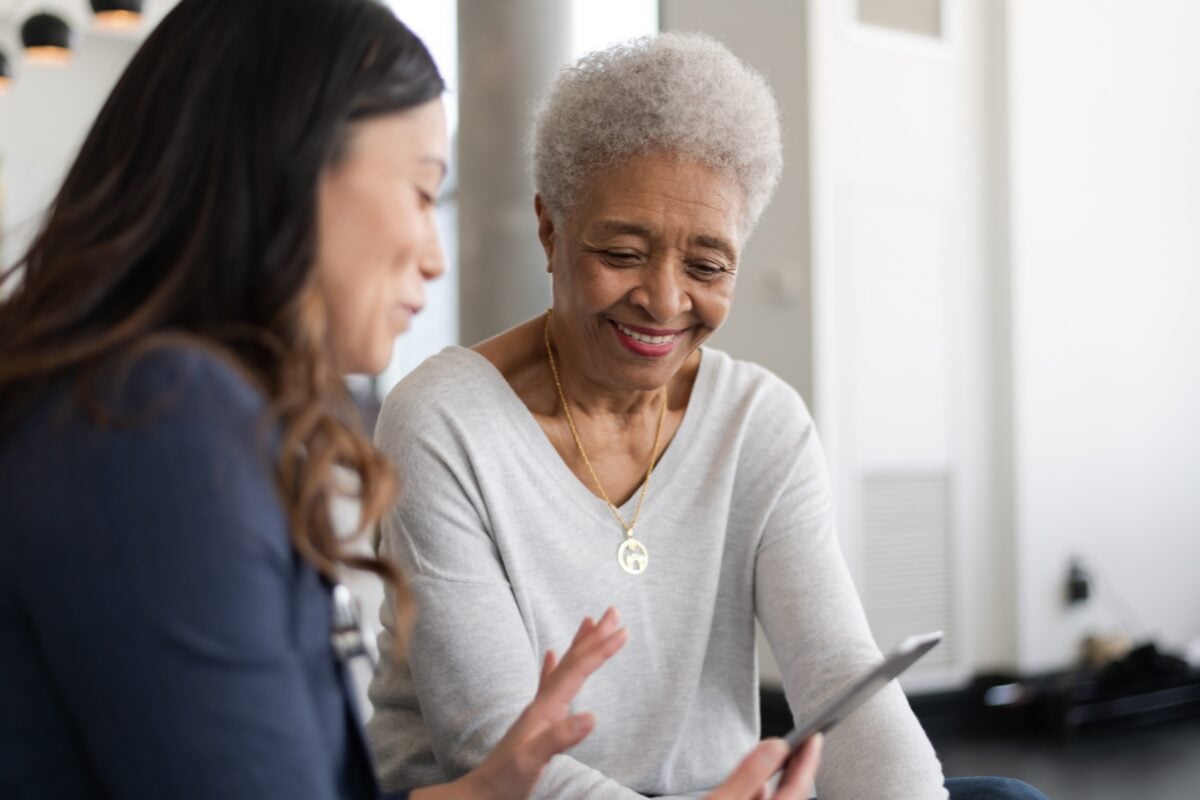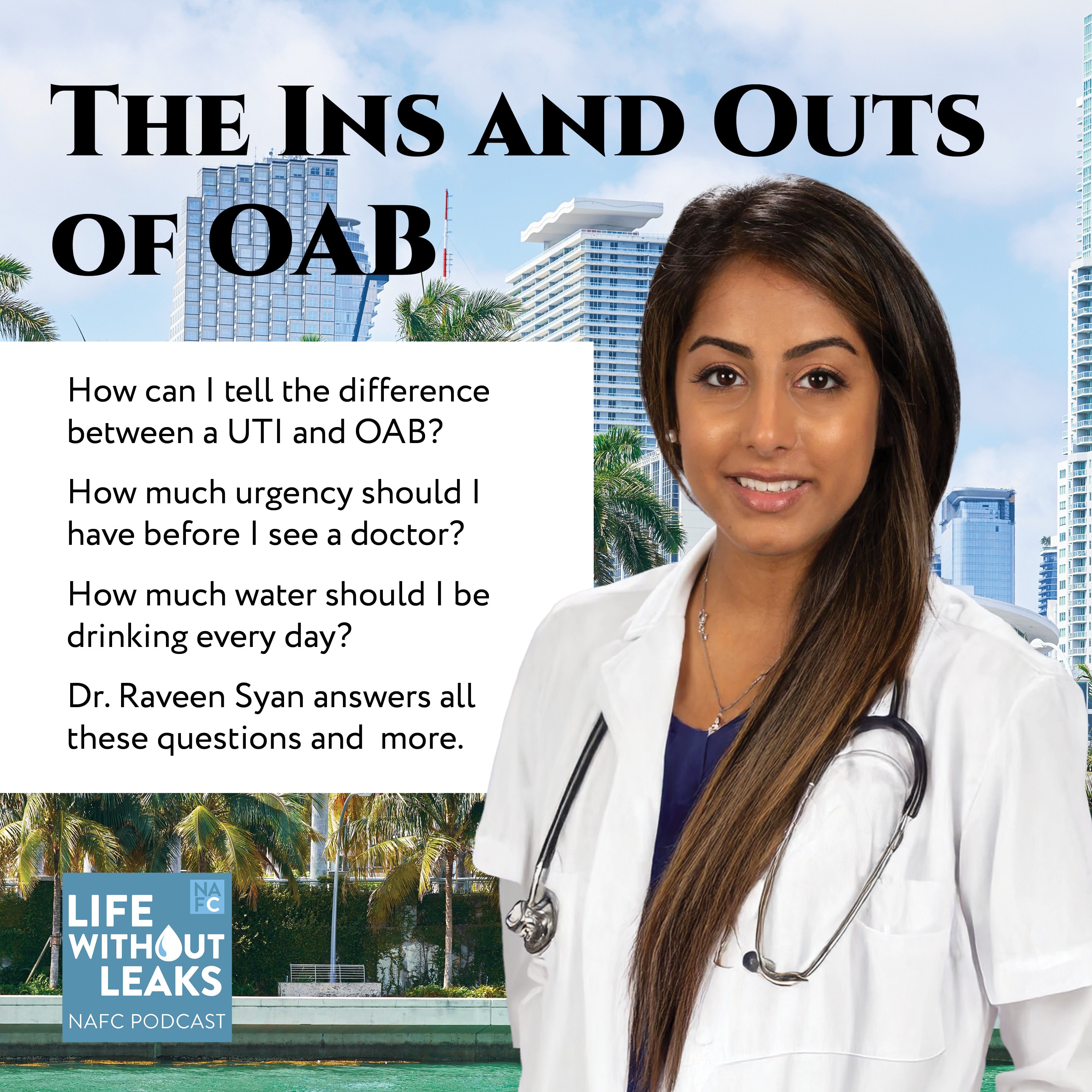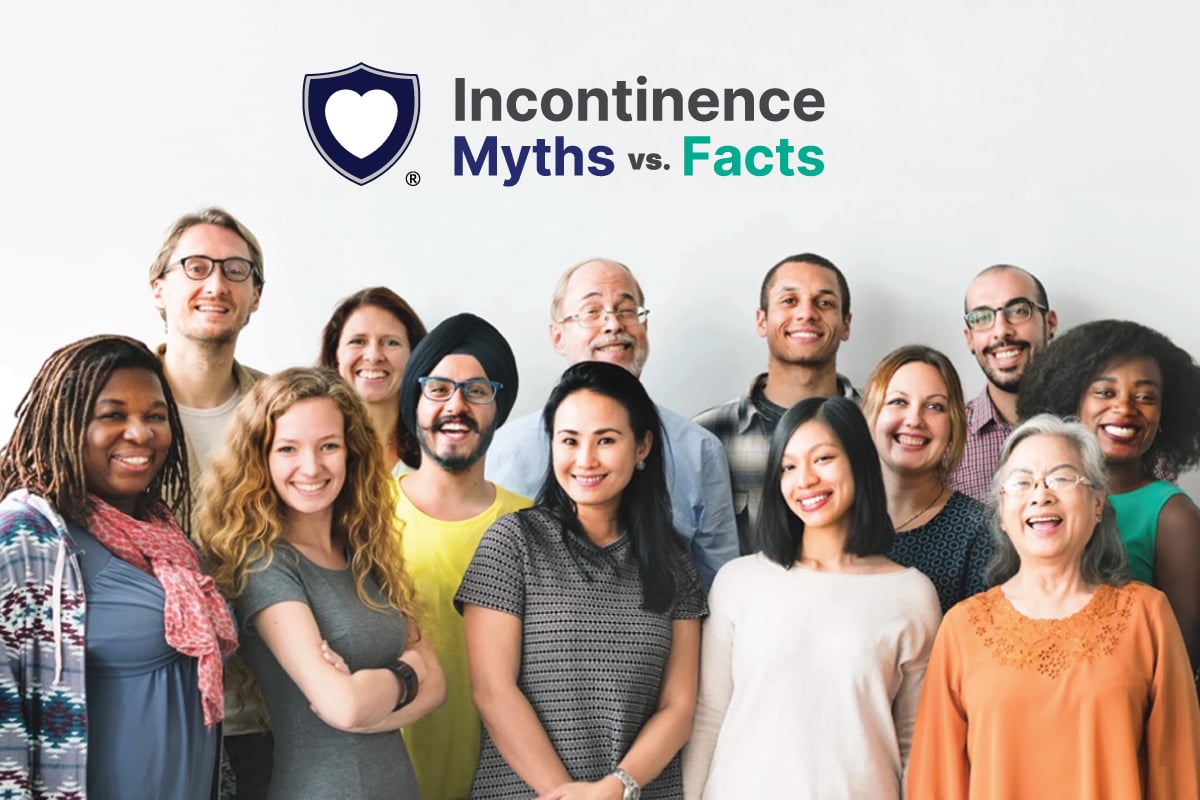Medicaid is the nation’s public health insurance program designed for individuals and families who may be low-income, elderly, or disabled. The Medicaid program covers more than 1 in 5 Americans, including many with complex and costly needs for care. With over 74 million Americans relying on Medicaid, it is the largest single source of health coverage in the U.S. The program ensures that qualifying individuals can access medically necessary products, including incontinence supplies, urological supplies, and other medical necessities, as well as healthcare and long-term care services.
Urinary incontinence is a prevalent condition that impacts over 25 million people in the U.S., including more than half of all seniors. Managing incontinence can be challenging, especially for those on a limited income, as the cost of incontinence briefs, underpads, and other bladder control supplies can quickly add up.
Fortunately, for many individuals on Medicaid, coverage is available for the medical supplies needed to effectively manage incontinence, provided there is a qualifying medical diagnosis. This coverage ensures that individuals receive the necessary products to maintain their health and quality of life.
“,”drop_cap”:””,”text_columns”:””,”text_columns_tablet”:””,”text_columns_mobile”:””,”column_gap”:{“unit”:”px”,”size”:””,”sizes”:[]},”column_gap_tablet”:{“unit”:”px”,”size”:””,”sizes”:[]},”column_gap_mobile”:{“unit”:”px”,”size”:””,”sizes”:[]},”align”:””,”align_tablet”:””,”align_mobile”:””,”typography_typography”:””,”typography_font_family”:””,”typography_font_size”:{“unit”:”px”,”size”:””,”sizes”:[]},”typography_font_size_tablet”:{“unit”:”px”,”size”:””,”sizes”:[]},”typography_font_size_mobile”:{“unit”:”px”,”size”:””,”sizes”:[]},”typography_font_weight”:””,”typography_text_transform”:””,”typography_font_style”:””,”typography_text_decoration”:””,”typography_line_height”:{“unit”:”px”,”size”:””,”sizes”:[]},”typography_line_height_tablet”:{“unit”:”em”,”size”:””,”sizes”:[]},”typography_line_height_mobile”:{“unit”:”em”,”size”:””,”sizes”:[]},”typography_letter_spacing”:{“unit”:”px”,”size”:””,”sizes”:[]},”typography_letter_spacing_tablet”:{“unit”:”px”,”size”:””,”sizes”:[]},”typography_letter_spacing_mobile”:{“unit”:”px”,”size”:””,”sizes”:[]},”typography_word_spacing”:{“unit”:”px”,”size”:””,”sizes”:[]},”typography_word_spacing_tablet”:{“unit”:”em”,”size”:””,”sizes”:[]},”typography_word_spacing_mobile”:{“unit”:”em”,”size”:””,”sizes”:[]},”text_shadow_text_shadow_type”:””,”text_shadow_text_shadow”:{“horizontal”:0,”vertical”:0,”blur”:10,”color”:”rgba(0,0,0,0.3)”},”paragraph_spacing”:{“unit”:”px”,”size”:””,”sizes”:[]},”paragraph_spacing_tablet”:{“unit”:”px”,”size”:””,”sizes”:[]},”paragraph_spacing_mobile”:{“unit”:”px”,”size”:””,”sizes”:[]},”text_color”:””,”link_color”:””,”link_hover_color”:””,”link_hover_color_transition_duration”:{“unit”:”s”,”size”:””,”sizes”:[]},”drop_cap_view”:”default”,”drop_cap_primary_color”:””,”drop_cap_secondary_color”:””,”drop_cap_shadow_text_shadow_type”:””,”drop_cap_shadow_text_shadow”:{“horizontal”:0,”vertical”:0,”blur”:10,”color”:”rgba(0,0,0,0.3)”},”drop_cap_size”:{“unit”:”px”,”size”:5,”sizes”:[]},”drop_cap_space”:{“unit”:”px”,”size”:10,”sizes”:[]},”drop_cap_border_radius”:{“unit”:”%”,”size”:””,”sizes”:[]},”drop_cap_border_width”:{“unit”:”px”,”top”:””,”right”:””,”bottom”:””,”left”:””,”isLinked”:true},”drop_cap_typography_typography”:””,”drop_cap_typography_font_family”:””,”drop_cap_typography_font_size”:{“unit”:”px”,”size”:””,”sizes”:[]},”drop_cap_typography_font_size_tablet”:{“unit”:”px”,”size”:””,”sizes”:[]},”drop_cap_typography_font_size_mobile”:{“unit”:”px”,”size”:””,”sizes”:[]},”drop_cap_typography_font_weight”:””,”drop_cap_typography_text_transform”:””,”drop_cap_typography_font_style”:””,”drop_cap_typography_text_decoration”:””,”drop_cap_typography_line_height”:{“unit”:”px”,”size”:””,”sizes”:[]},”drop_cap_typography_line_height_tablet”:{“unit”:”em”,”size”:””,”sizes”:[]},”drop_cap_typography_line_height_mobile”:{“unit”:”em”,”size”:””,”sizes”:[]},”drop_cap_typography_word_spacing”:{“unit”:”px”,”size”:””,”sizes”:[]},”drop_cap_typography_word_spacing_tablet”:{“unit”:”em”,”size”:””,”sizes”:[]},”drop_cap_typography_word_spacing_mobile”:{“unit”:”em”,”size”:””,”sizes”:[]},”_title”:””,”_margin”:{“unit”:”px”,”top”:””,”right”:””,”bottom”:””,”left”:””,”isLinked”:true},”_margin_tablet”:{“unit”:”px”,”top”:””,”right”:””,”bottom”:””,”left”:””,”isLinked”:true},”_margin_mobile”:{“unit”:”px”,”top”:””,”right”:””,”bottom”:””,”left”:””,”isLinked”:true},”_padding”:{“unit”:”px”,”top”:””,”right”:””,”bottom”:””,”left”:””,”isLinked”:true},”_padding_tablet”:{“unit”:”px”,”top”:””,”right”:””,”bottom”:””,”left”:””,”isLinked”:true},”_padding_mobile”:{“unit”:”px”,”top”:””,”right”:””,”bottom”:””,”left”:””,”isLinked”:true},”_element_width”:””,”_element_width_tablet”:””,”_element_width_mobile”:””,”_element_custom_width”:{“unit”:”%”,”size”:””,”sizes”:[]},”_element_custom_width_tablet”:{“unit”:”px”,”size”:””,”sizes”:[]},”_element_custom_width_mobile”:{“unit”:”px”,”size”:””,”sizes”:[]},”_grid_column”:””,”_grid_column_tablet”:””,”_grid_column_mobile”:””,”_grid_column_custom”:””,”_grid_column_custom_tablet”:””,”_grid_column_custom_mobile”:””,”_grid_row”:””,”_grid_row_tablet”:””,”_grid_row_mobile”:””,”_grid_row_custom”:””,”_grid_row_custom_tablet”:””,”_grid_row_custom_mobile”:””,”_flex_align_self”:””,”_flex_align_self_tablet”:””,”_flex_align_self_mobile”:””,”_flex_order”:””,”_flex_order_tablet”:””,”_flex_order_mobile”:””,”_flex_order_custom”:””,”_flex_order_custom_tablet”:””,”_flex_order_custom_mobile”:””,”_flex_size”:””,”_flex_size_tablet”:””,”_flex_size_mobile”:””,”_flex_grow”:1,”_flex_grow_tablet”:””,”_flex_grow_mobile”:””,”_flex_shrink”:1,”_flex_shrink_tablet”:””,”_flex_shrink_mobile”:””,”_element_vertical_align”:””,”_element_vertical_align_tablet”:””,”_element_vertical_align_mobile”:””,”_position”:””,”_offset_orientation_h”:”start”,”_offset_x”:{“unit”:”px”,”size”:0,”sizes”:[]},”_offset_x_tablet”:{“unit”:”px”,”size”:””,”sizes”:[]},”_offset_x_mobile”:{“unit”:”px”,”size”:””,”sizes”:[]},”_offset_x_end”:{“unit”:”px”,”size”:0,”sizes”:[]},”_offset_x_end_tablet”:{“unit”:”px”,”size”:””,”sizes”:[]},”_offset_x_end_mobile”:{“unit”:”px”,”size”:””,”sizes”:[]},”_offset_orientation_v”:”start”,”_offset_y”:{“unit”:”px”,”size”:0,”sizes”:[]},”_offset_y_tablet”:{“unit”:”px”,”size”:””,”sizes”:[]},”_offset_y_mobile”:{“unit”:”px”,”size”:””,”sizes”:[]},”_offset_y_end”:{“unit”:”px”,”size”:0,”sizes”:[]},”_offset_y_end_tablet”:{“unit”:”px”,”size”:””,”sizes”:[]},”_offset_y_end_mobile”:{“unit”:”px”,”size”:””,”sizes”:[]},”_z_index”:””,”_z_index_tablet”:””,”_z_index_mobile”:””,”_element_id”:””,”_css_classes”:””,”e_display_conditions”:””,”dynamicconditions_dynamic”:{“url”:””,”id”:””,”size”:””},”dynamicconditions_visibility”:”hide”,”dynamicconditions_condition”:””,”dynamicconditions_type”:”default”,”dynamicconditions_value”:””,”dynamicconditions_value2″:””,”dynamicconditions_date_value”:””,”dynamicconditions_date_value2″:””,”dynamicconditions_day_array_value”:””,”dynamicconditions_day_value”:””,”dynamicconditions_day_value2″:””,”dynamicconditions_month_array_value”:””,”dynamicconditions_month_value”:””,”dynamicconditions_month_value2″:””,”dynamicconditions_hideContentOnly”:””,”dynamicconditions_removeStyles”:””,”dynamicconditions_parse_shortcodes”:””,”dynamicconditions_prevent_date_parsing”:””,”dynamicconditions_hideWrapper”:””,”dynamicconditions_hideOthers”:””,”dynamicconditions_widget_id”:””,”dynamicconditions_debug”:””,”eael_wrapper_link_switch”:””,”eael_wrapper_link”:{“url”:””,”is_external”:””,”nofollow”:””,”custom_attributes”:””},”eael_wrapper_link_disable_traditional”:””,”eael_hover_effect_switch”:””,”eael_hover_effect_enable_live_changes”:””,”eael_hover_effect_opacity_popover”:””,”eael_hover_effect_opacity”:{“unit”:”px”,”size”:0.8,”sizes”:[]},”eael_hover_effect_filter_popover”:””,”eael_hover_effect_blur_is_on”:””,”eael_hover_effect_blur”:{“unit”:”px”,”size”:1,”sizes”:[]},”eael_hover_effect_contrast_is_on”:””,”eael_hover_effect_contrast”:{“unit”:”px”,”size”:80,”sizes”:[]},”eael_hover_effect_grayscale_is_on”:””,”eael_hover_effect_grayscal”:{“unit”:”px”,”size”:40,”sizes”:[]},”eael_hover_effect_invert_is_on”:””,”eael_hover_effect_invert”:{“unit”:”px”,”size”:70,”sizes”:[]},”eael_hover_effect_saturate_is_on”:””,”eael_hover_effect_saturate”:{“unit”:”px”,”size”:50,”sizes”:[]},”eael_hover_effect_sepia_is_on”:””,”eael_hover_effect_sepia”:{“unit”:”px”,”size”:50,”sizes”:[]},”eael_hover_effect_offset_popover”:””,”eael_hover_effect_offset_left”:{“unit”:”px”,”size”:5,”sizes”:[]},”eael_hover_effect_offset_left_tablet”:{“unit”:”px”,”size”:””,”sizes”:[]},”eael_hover_effect_offset_left_mobile”:{“unit”:”px”,”size”:””,”sizes”:[]},”eael_hover_effect_offset_top”:{“unit”:”px”,”size”:5,”sizes”:[]},”eael_hover_effect_offset_top_tablet”:{“unit”:”px”,”size”:””,”sizes”:[]},”eael_hover_effect_offset_top_mobile”:{“unit”:”px”,”size”:””,”sizes”:[]},”eael_hover_effect_transform_popover”:””,”eael_hover_effect_rotate_is_on”:””,”eael_hover_effect_transform_rotatex”:{“unit”:”px”,”size”:0,”sizes”:[]},”eael_hover_effect_transform_rotatex_tablet”:{“unit”:”px”,”size”:””,”sizes”:[]},”eael_hover_effect_transform_rotatex_mobile”:{“unit”:”px”,”size”:””,”sizes”:[]},”eael_hover_effect_transform_rotatey”:{“unit”:”px”,”size”:0,”sizes”:[]},”eael_hover_effect_transform_rotatey_tablet”:{“unit”:”px”,”size”:””,”sizes”:[]},”eael_hover_effect_transform_rotatey_mobile”:{“unit”:”px”,”size”:””,”sizes”:[]},”eael_hover_effect_transform_rotatez”:{“unit”:”px”,”size”:5,”sizes”:[]},”eael_hover_effect_transform_rotatez_tablet”:{“unit”:”px”,”size”:””,”sizes”:[]},”eael_hover_effect_transform_rotatez_mobile”:{“unit”:”px”,”size”:””,”sizes”:[]},”eael_hover_effect_scale_is_on”:””,”eael_hover_effect_transform_scalex”:{“unit”:”px”,”size”:0.9,”sizes”:[]},”eael_hover_effect_transform_scalex_tablet”:{“unit”:”px”,”size”:””,”sizes”:[]},”eael_hover_effect_transform_scalex_mobile”:{“unit”:”px”,”size”:””,”sizes”:[]},”eael_hover_effect_transform_scaley”:{“unit”:”px”,”size”:0.9,”sizes”:[]},”eael_hover_effect_transform_scaley_tablet”:{“unit”:”px”,”size”:””,”sizes”:[]},”eael_hover_effect_transform_scaley_mobile”:{“unit”:”px”,”size”:””,”sizes”:[]},”eael_hover_effect_skew_is_on”:””,”eael_hover_effect_transform_skewx”:{“unit”:”px”,”size”:5,”sizes”:[]},”eael_hover_effect_transform_skewx_tablet”:{“unit”:”px”,”size”:””,”sizes”:[]},”eael_hover_effect_transform_skewx_mobile”:{“unit”:”px”,”size”:””,”sizes”:[]},”eael_hover_effect_transform_skewy”:{“unit”:”px”,”size”:5,”sizes”:[]},”eael_hover_effect_transform_skewy_tablet”:{“unit”:”px”,”size”:””,”sizes”:[]},”eael_hover_effect_transform_skewy_mobile”:{“unit”:”px”,”size”:””,”sizes”:[]},”eael_hover_effect_general_settings_duration”:{“unit”:”px”,”size”:1000,”sizes”:[]},”eael_hover_effect_general_settings_delay”:{“unit”:”px”,”size”:””,”sizes”:[]},”eael_hover_effect_general_settings_easing”:”ease”,”eael_hover_effect_opacity_popover_hover”:””,”eael_hover_effect_opacity_hover”:{“unit”:”px”,”size”:1,”sizes”:[]},”eael_hover_effect_filter_hover_popover”:””,”eael_hover_effect_blur_hover_is_on”:””,”eael_hover_effect_blur_hover”:{“unit”:”px”,”size”:0,”sizes”:[]},”eael_hover_effect_contrast_hover_is_on”:””,”eael_hover_effect_contrast_hover”:{“unit”:”%”,”size”:100,”sizes”:[]},”eael_hover_effect_grayscale_hover_is_on”:””,”eael_hover_effect_grayscal_hover”:{“unit”:”%”,”size”:0,”sizes”:[]},”eael_hover_effect_invert_hover_is_on”:””,”eael_hover_effect_invert_hover”:{“unit”:”%”,”size”:0,”sizes”:[]},”eael_hover_effect_saturate_hover_is_on”:””,”eael_hover_effect_saturate_hover”:{“unit”:”%”,”size”:100,”sizes”:[]},”eael_hover_effect_sepia_hover_is_on”:””,”eael_hover_effect_sepia_hover”:{“unit”:”px”,”size”:1,”sizes”:[]},”eael_hover_effect_offset_hover_popover”:””,”eael_hover_effect_offset_hover_left”:{“unit”:”px”,”size”:0,”sizes”:[]},”eael_hover_effect_offset_hover_left_tablet”:{“unit”:”px”,”size”:””,”sizes”:[]},”eael_hover_effect_offset_hover_left_mobile”:{“unit”:”px”,”size”:””,”sizes”:[]},”eael_hover_effect_offset_hover_top”:{“unit”:”px”,”size”:0,”sizes”:[]},”eael_hover_effect_offset_hover_top_tablet”:{“unit”:”px”,”size”:””,”sizes”:[]},”eael_hover_effect_offset_hover_top_mobile”:{“unit”:”px”,”size”:””,”sizes”:[]},”eael_hover_effect_transform_hover_popover”:””,”eael_hover_effect_rotate_hover_is_on”:””,”eael_hover_effect_transform_hover_rotatex”:{“unit”:”px”,”size”:0,”sizes”:[]},”eael_hover_effect_transform_hover_rotatex_tablet”:{“unit”:”px”,”size”:””,”sizes”:[]},”eael_hover_effect_transform_hover_rotatex_mobile”:{“unit”:”px”,”size”:””,”sizes”:[]},”eael_hover_effect_transform_hover_rotatey”:{“unit”:”px”,”size”:0,”sizes”:[]},”eael_hover_effect_transform_hover_rotatey_tablet”:{“unit”:”px”,”size”:””,”sizes”:[]},”eael_hover_effect_transform_hover_rotatey_mobile”:{“unit”:”px”,”size”:””,”sizes”:[]},”eael_hover_effect_transform_hover_rotatez”:{“unit”:”px”,”size”:0,”sizes”:[]},”eael_hover_effect_transform_hover_rotatez_tablet”:{“unit”:”px”,”size”:””,”sizes”:[]},”eael_hover_effect_transform_hover_rotatez_mobile”:{“unit”:”px”,”size”:””,”sizes”:[]},”eael_hover_effect_scale_hover_is_on”:””,”eael_hover_effect_transform_hover_scalex”:{“unit”:”px”,”size”:1,”sizes”:[]},”eael_hover_effect_transform_hover_scalex_tablet”:{“unit”:”px”,”size”:””,”sizes”:[]},”eael_hover_effect_transform_hover_scalex_mobile”:{“unit”:”px”,”size”:””,”sizes”:[]},”eael_hover_effect_transform_hover_scaley”:{“unit”:”px”,”size”:0,”sizes”:[]},”eael_hover_effect_transform_hover_scaley_tablet”:{“unit”:”px”,”size”:””,”sizes”:[]},”eael_hover_effect_transform_hover_scaley_mobile”:{“unit”:”px”,”size”:””,”sizes”:[]},”eael_hover_effect_skew_hover_is_on”:””,”eael_hover_effect_transform_hover_skewx”:{“unit”:”px”,”size”:0,”sizes”:[]},”eael_hover_effect_transform_hover_skewx_tablet”:{“unit”:”px”,”size”:””,”sizes”:[]},”eael_hover_effect_transform_hover_skewx_mobile”:{“unit”:”px”,”size”:””,”sizes”:[]},”eael_hover_effect_transform_hover_skewy”:{“unit”:”px”,”size”:0,”sizes”:[]},”eael_hover_effect_transform_hover_skewy_tablet”:{“unit”:”px”,”size”:””,”sizes”:[]},”eael_hover_effect_transform_hover_skewy_mobile”:{“unit”:”px”,”size”:””,”sizes”:[]},”eael_hover_effect_general_settings_hover_duration”:{“unit”:”px”,”size”:1000,”sizes”:[]},”eael_hover_effect_general_settings_hover_delay”:{“unit”:”px”,”size”:””,”sizes”:[]},”eael_hover_effect_general_settings_hover_easing”:”ease”,”eael_hover_effect_hover_tilt”:””,”motion_fx_motion_fx_scrolling”:””,”motion_fx_translateY_effect”:””,”motion_fx_translateY_direction”:””,”motion_fx_translateY_speed”:{“unit”:”px”,”size”:4,”sizes”:[]},”motion_fx_translateY_affectedRange”:{“unit”:”%”,”size”:””,”sizes”:{“start”:0,”end”:100}},”motion_fx_translateX_effect”:””,”motion_fx_translateX_direction”:””,”motion_fx_translateX_speed”:{“unit”:”px”,”size”:4,”sizes”:[]},”motion_fx_translateX_affectedRange”:{“unit”:”%”,”size”:””,”sizes”:{“start”:0,”end”:100}},”motion_fx_opacity_effect”:””,”motion_fx_opacity_direction”:”out-in”,”motion_fx_opacity_level”:{“unit”:”px”,”size”:10,”sizes”:[]},”motion_fx_opacity_range”:{“unit”:”%”,”size”:””,”sizes”:{“start”:20,”end”:80}},”motion_fx_blur_effect”:””,”motion_fx_blur_direction”:”out-in”,”motion_fx_blur_level”:{“unit”:”px”,”size”:7,”sizes”:[]},”motion_fx_blur_range”:{“unit”:”%”,”size”:””,”sizes”:{“start”:20,”end”:80}},”motion_fx_rotateZ_effect”:””,”motion_fx_rotateZ_direction”:””,”motion_fx_rotateZ_speed”:{“unit”:”px”,”size”:1,”sizes”:[]},”motion_fx_rotateZ_affectedRange”:{“unit”:”%”,”size”:””,”sizes”:{“start”:0,”end”:100}},”motion_fx_scale_effect”:””,”motion_fx_scale_direction”:”out-in”,”motion_fx_scale_speed”:{“unit”:”px”,”size”:4,”sizes”:[]},”motion_fx_scale_range”:{“unit”:”%”,”size”:””,”sizes”:{“start”:20,”end”:80}},”motion_fx_transform_origin_x”:”center”,”motion_fx_transform_origin_y”:”center”,”motion_fx_devices”:[“desktop”,”tablet”,”mobile”],”motion_fx_range”:””,”motion_fx_motion_fx_mouse”:””,”motion_fx_mouseTrack_effect”:””,”motion_fx_mouseTrack_direction”:””,”motion_fx_mouseTrack_speed”:{“unit”:”px”,”size”:1,”sizes”:[]},”motion_fx_tilt_effect”:””,”motion_fx_tilt_direction”:””,”motion_fx_tilt_speed”:{“unit”:”px”,”size”:4,”sizes”:[]},”handle_motion_fx_asset_loading”:””,”sticky”:””,”sticky_on”:[“desktop”,”tablet”,”mobile”],”sticky_offset”:0,”sticky_offset_tablet”:””,”sticky_offset_mobile”:””,”sticky_effects_offset”:0,”sticky_effects_offset_tablet”:””,”sticky_effects_offset_mobile”:””,”sticky_anchor_link_offset”:0,”sticky_anchor_link_offset_tablet”:””,”sticky_anchor_link_offset_mobile”:””,”sticky_parent”:””,”_animation”:””,”_animation_tablet”:””,”_animation_mobile”:””,”animation_duration”:””,”_animation_delay”:””,”_transform_rotate_popover”:””,”_transform_rotateZ_effect”:{“unit”:”px”,”size”:””,”sizes”:[]},”_transform_rotateZ_effect_tablet”:{“unit”:”deg”,”size”:””,”sizes”:[]},”_transform_rotateZ_effect_mobile”:{“unit”:”deg”,”size”:””,”sizes”:[]},”_transform_rotate_3d”:””,”_transform_rotateX_effect”:{“unit”:”px”,”size”:””,”sizes”:[]},”_transform_rotateX_effect_tablet”:{“unit”:”deg”,”size”:””,”sizes”:[]},”_transform_rotateX_effect_mobile”:{“unit”:”deg”,”size”:””,”sizes”:[]},”_transform_rotateY_effect”:{“unit”:”px”,”size”:””,”sizes”:[]},”_transform_rotateY_effect_tablet”:{“unit”:”deg”,”size”:””,”sizes”:[]},”_transform_rotateY_effect_mobile”:{“unit”:”deg”,”size”:””,”sizes”:[]},”_transform_perspective_effect”:{“unit”:”px”,”size”:””,”sizes”:[]},”_transform_perspective_effect_tablet”:{“unit”:”px”,”size”:””,”sizes”:[]},”_transform_perspective_effect_mobile”:{“unit”:”px”,”size”:””,”sizes”:[]},”_transform_translate_popover”:””,”_transform_translateX_effect”:{“unit”:”px”,”size”:””,”sizes”:[]},”_transform_translateX_effect_tablet”:{“unit”:”px”,”size”:””,”sizes”:[]},”_transform_translateX_effect_mobile”:{“unit”:”px”,”size”:””,”sizes”:[]},”_transform_translateY_effect”:{“unit”:”px”,”size”:””,”sizes”:[]},”_transform_translateY_effect_tablet”:{“unit”:”px”,”size”:””,”sizes”:[]},”_transform_translateY_effect_mobile”:{“unit”:”px”,”size”:””,”sizes”:[]},”_transform_scale_popover”:””,”_transform_keep_proportions”:”yes”,”_transform_scale_effect”:{“unit”:”px”,”size”:””,”sizes”:[]},”_transform_scale_effect_tablet”:{“unit”:”px”,”size”:””,”sizes”:[]},”_transform_scale_effect_mobile”:{“unit”:”px”,”size”:””,”sizes”:[]},”_transform_scaleX_effect”:{“unit”:”px”,”size”:””,”sizes”:[]},”_transform_scaleX_effect_tablet”:{“unit”:”px”,”size”:””,”sizes”:[]},”_transform_scaleX_effect_mobile”:{“unit”:”px”,”size”:””,”sizes”:[]},”_transform_scaleY_effect”:{“unit”:”px”,”size”:””,”sizes”:[]},”_transform_scaleY_effect_tablet”:{“unit”:”px”,”size”:””,”sizes”:[]},”_transform_scaleY_effect_mobile”:{“unit”:”px”,”size”:””,”sizes”:[]},”_transform_skew_popover”:””,”_transform_skewX_effect”:{“unit”:”px”,”size”:””,”sizes”:[]},”_transform_skewX_effect_tablet”:{“unit”:”deg”,”size”:””,”sizes”:[]},”_transform_skewX_effect_mobile”:{“unit”:”deg”,”size”:””,”sizes”:[]},”_transform_skewY_effect”:{“unit”:”px”,”size”:””,”sizes”:[]},”_transform_skewY_effect_tablet”:{“unit”:”deg”,”size”:””,”sizes”:[]},”_transform_skewY_effect_mobile”:{“unit”:”deg”,”size”:””,”sizes”:[]},”_transform_flipX_effect”:””,”_transform_flipY_effect”:””,”_transform_rotate_popover_hover”:””,”_transform_rotateZ_effect_hover”:{“unit”:”px”,”size”:””,”sizes”:[]},”_transform_rotateZ_effect_hover_tablet”:{“unit”:”deg”,”size”:””,”sizes”:[]},”_transform_rotateZ_effect_hover_mobile”:{“unit”:”deg”,”size”:””,”sizes”:[]},”_transform_rotate_3d_hover”:””,”_transform_rotateX_effect_hover”:{“unit”:”px”,”size”:””,”sizes”:[]},”_transform_rotateX_effect_hover_tablet”:{“unit”:”deg”,”size”:””,”sizes”:[]},”_transform_rotateX_effect_hover_mobile”:{“unit”:”deg”,”size”:””,”sizes”:[]},”_transform_rotateY_effect_hover”:{“unit”:”px”,”size”:””,”sizes”:[]},”_transform_rotateY_effect_hover_tablet”:{“unit”:”deg”,”size”:””,”sizes”:[]},”_transform_rotateY_effect_hover_mobile”:{“unit”:”deg”,”size”:””,”sizes”:[]},”_transform_perspective_effect_hover”:{“unit”:”px”,”size”:””,”sizes”:[]},”_transform_perspective_effect_hover_tablet”:{“unit”:”px”,”size”:””,”sizes”:[]},”_transform_perspective_effect_hover_mobile”:{“unit”:”px”,”size”:””,”sizes”:[]},”_transform_translate_popover_hover”:””,”_transform_translateX_effect_hover”:{“unit”:”px”,”size”:””,”sizes”:[]},”_transform_translateX_effect_hover_tablet”:{“unit”:”px”,”size”:””,”sizes”:[]},”_transform_translateX_effect_hover_mobile”:{“unit”:”px”,”size”:””,”sizes”:[]},”_transform_translateY_effect_hover”:{“unit”:”px”,”size”:””,”sizes”:[]},”_transform_translateY_effect_hover_tablet”:{“unit”:”px”,”size”:””,”sizes”:[]},”_transform_translateY_effect_hover_mobile”:{“unit”:”px”,”size”:””,”sizes”:[]},”_transform_scale_popover_hover”:””,”_transform_keep_proportions_hover”:”yes”,”_transform_scale_effect_hover”:{“unit”:”px”,”size”:””,”sizes”:[]},”_transform_scale_effect_hover_tablet”:{“unit”:”px”,”size”:””,”sizes”:[]},”_transform_scale_effect_hover_mobile”:{“unit”:”px”,”size”:””,”sizes”:[]},”_transform_scaleX_effect_hover”:{“unit”:”px”,”size”:””,”sizes”:[]},”_transform_scaleX_effect_hover_tablet”:{“unit”:”px”,”size”:””,”sizes”:[]},”_transform_scaleX_effect_hover_mobile”:{“unit”:”px”,”size”:””,”sizes”:[]},”_transform_scaleY_effect_hover”:{“unit”:”px”,”size”:””,”sizes”:[]},”_transform_scaleY_effect_hover_tablet”:{“unit”:”px”,”size”:””,”sizes”:[]},”_transform_scaleY_effect_hover_mobile”:{“unit”:”px”,”size”:””,”sizes”:[]},”_transform_skew_popover_hover”:””,”_transform_skewX_effect_hover”:{“unit”:”px”,”size”:””,”sizes”:[]},”_transform_skewX_effect_hover_tablet”:{“unit”:”deg”,”size”:””,”sizes”:[]},”_transform_skewX_effect_hover_mobile”:{“unit”:”deg”,”size”:””,”sizes”:[]},”_transform_skewY_effect_hover”:{“unit”:”px”,”size”:””,”sizes”:[]},”_transform_skewY_effect_hover_tablet”:{“unit”:”deg”,”size”:””,”sizes”:[]},”_transform_skewY_effect_hover_mobile”:{“unit”:”deg”,”size”:””,”sizes”:[]},”_transform_flipX_effect_hover”:””,”_transform_flipY_effect_hover”:””,”_transform_transition_hover”:{“unit”:”px”,”size”:””,”sizes”:[]},”motion_fx_transform_x_anchor_point”:””,”motion_fx_transform_x_anchor_point_tablet”:””,”motion_fx_transform_x_anchor_point_mobile”:””,”motion_fx_transform_y_anchor_point”:””,”motion_fx_transform_y_anchor_point_tablet”:””,”motion_fx_transform_y_anchor_point_mobile”:””,”_background_background”:””,”_background_color”:””,”_background_color_stop”:{“unit”:”%”,”size”:0,”sizes”:[]},”_background_color_stop_tablet”:{“unit”:”%”},”_background_color_stop_mobile”:{“unit”:”%”},”_background_color_b”:”#f2295b”,”_background_color_b_stop”:{“unit”:”%”,”size”:100,”sizes”:[]},”_background_color_b_stop_tablet”:{“unit”:”%”},”_background_color_b_stop_mobile”:{“unit”:”%”},”_background_gradient_type”:”linear”,”_background_gradient_angle”:{“unit”:”deg”,”size”:180,”sizes”:[]},”_background_gradient_angle_tablet”:{“unit”:”deg”},”_background_gradient_angle_mobile”:{“unit”:”deg”},”_background_gradient_position”:”center center”,”_background_gradient_position_tablet”:””,”_background_gradient_position_mobile”:””,”_background_image”:{“url”:””,”id”:””,”size”:””},”_background_image_tablet”:{“url”:””,”id”:””,”size”:””},”_background_image_mobile”:{“url”:””,”id”:””,”size”:””},”_background_position”:””,”_background_position_tablet”:””,”_background_position_mobile”:””,”_background_xpos”:{“unit”:”px”,”size”:0,”sizes”:[]},”_background_xpos_tablet”:{“unit”:”px”,”size”:0,”sizes”:[]},”_background_xpos_mobile”:{“unit”:”px”,”size”:0,”sizes”:[]},”_background_ypos”:{“unit”:”px”,”size”:0,”sizes”:[]},”_background_ypos_tablet”:{“unit”:”px”,”size”:0,”sizes”:[]},”_background_ypos_mobile”:{“unit”:”px”,”size”:0,”sizes”:[]},”_background_attachment”:””,”_background_repeat”:””,”_background_repeat_tablet”:””,”_background_repeat_mobile”:””,”_background_size”:””,”_background_size_tablet”:””,”_background_size_mobile”:””,”_background_bg_width”:{“unit”:”%”,”size”:100,”sizes”:[]},”_background_bg_width_tablet”:{“unit”:”px”,”size”:””,”sizes”:[]},”_background_bg_width_mobile”:{“unit”:”px”,”size”:””,”sizes”:[]},”_background_video_link”:””,”_background_video_start”:””,”_background_video_end”:””,”_background_play_once”:””,”_background_play_on_mobile”:””,”_background_privacy_mode”:””,”_background_video_fallback”:{“url”:””,”id”:””,”size”:””},”_background_slideshow_gallery”:[],”_background_slideshow_loop”:”yes”,”_background_slideshow_slide_duration”:5000,”_background_slideshow_slide_transition”:”fade”,”_background_slideshow_transition_duration”:500,”_background_slideshow_background_size”:””,”_background_slideshow_background_size_tablet”:””,”_background_slideshow_background_size_mobile”:””,”_background_slideshow_background_position”:””,”_background_slideshow_background_position_tablet”:””,”_background_slideshow_background_position_mobile”:””,”_background_slideshow_lazyload”:””,”_background_slideshow_ken_burns”:””,”_background_slideshow_ken_burns_zoom_direction”:”in”,”_background_hover_background”:””,”_background_hover_color”:””,”_background_hover_color_stop”:{“unit”:”%”,”size”:0,”sizes”:[]},”_background_hover_color_stop_tablet”:{“unit”:”%”},”_background_hover_color_stop_mobile”:{“unit”:”%”},”_background_hover_color_b”:”#f2295b”,”_background_hover_color_b_stop”:{“unit”:”%”,”size”:100,”sizes”:[]},”_background_hover_color_b_stop_tablet”:{“unit”:”%”},”_background_hover_color_b_stop_mobile”:{“unit”:”%”},”_background_hover_gradient_type”:”linear”,”_background_hover_gradient_angle”:{“unit”:”deg”,”size”:180,”sizes”:[]},”_background_hover_gradient_angle_tablet”:{“unit”:”deg”},”_background_hover_gradient_angle_mobile”:{“unit”:”deg”},”_background_hover_gradient_position”:”center center”,”_background_hover_gradient_position_tablet”:””,”_background_hover_gradient_position_mobile”:””,”_background_hover_image”:{“url”:””,”id”:””,”size”:””},”_background_hover_image_tablet”:{“url”:””,”id”:””,”size”:””},”_background_hover_image_mobile”:{“url”:””,”id”:””,”size”:””},”_background_hover_position”:””,”_background_hover_position_tablet”:””,”_background_hover_position_mobile”:””,”_background_hover_xpos”:{“unit”:”px”,”size”:0,”sizes”:[]},”_background_hover_xpos_tablet”:{“unit”:”px”,”size”:0,”sizes”:[]},”_background_hover_xpos_mobile”:{“unit”:”px”,”size”:0,”sizes”:[]},”_background_hover_ypos”:{“unit”:”px”,”size”:0,”sizes”:[]},”_background_hover_ypos_tablet”:{“unit”:”px”,”size”:0,”sizes”:[]},”_background_hover_ypos_mobile”:{“unit”:”px”,”size”:0,”sizes”:[]},”_background_hover_attachment”:””,”_background_hover_repeat”:””,”_background_hover_repeat_tablet”:””,”_background_hover_repeat_mobile”:””,”_background_hover_size”:””,”_background_hover_size_tablet”:””,”_background_hover_size_mobile”:””,”_background_hover_bg_width”:{“unit”:”%”,”size”:100,”sizes”:[]},”_background_hover_bg_width_tablet”:{“unit”:”px”,”size”:””,”sizes”:[]},”_background_hover_bg_width_mobile”:{“unit”:”px”,”size”:””,”sizes”:[]},”_background_hover_video_link”:””,”_background_hover_video_start”:””,”_background_hover_video_end”:””,”_background_hover_play_once”:””,”_background_hover_play_on_mobile”:””,”_background_hover_privacy_mode”:””,”_background_hover_video_fallback”:{“url”:””,”id”:””,”size”:””},”_background_hover_slideshow_gallery”:[],”_background_hover_slideshow_loop”:”yes”,”_background_hover_slideshow_slide_duration”:5000,”_background_hover_slideshow_slide_transition”:”fade”,”_background_hover_slideshow_transition_duration”:500,”_background_hover_slideshow_background_size”:””,”_background_hover_slideshow_background_size_tablet”:””,”_background_hover_slideshow_background_size_mobile”:””,”_background_hover_slideshow_background_position”:””,”_background_hover_slideshow_background_position_tablet”:””,”_background_hover_slideshow_background_position_mobile”:””,”_background_hover_slideshow_lazyload”:””,”_background_hover_slideshow_ken_burns”:””,”_background_hover_slideshow_ken_burns_zoom_direction”:”in”,”_background_hover_transition”:{“unit”:”px”,”size”:””,”sizes”:[]},”_border_border”:””,”_border_width”:{“unit”:”px”,”top”:””,”right”:””,”bottom”:””,”left”:””,”isLinked”:true},”_border_width_tablet”:{“unit”:”px”,”top”:””,”right”:””,”bottom”:””,”left”:””,”isLinked”:true},”_border_width_mobile”:{“unit”:”px”,”top”:””,”right”:””,”bottom”:””,”left”:””,”isLinked”:true},”_border_color”:””,”_border_radius”:{“unit”:”px”,”top”:””,”right”:””,”bottom”:””,”left”:””,”isLinked”:true},”_border_radius_tablet”:{“unit”:”px”,”top”:””,”right”:””,”bottom”:””,”left”:””,”isLinked”:true},”_border_radius_mobile”:{“unit”:”px”,”top”:””,”right”:””,”bottom”:””,”left”:””,”isLinked”:true},”_box_shadow_box_shadow_type”:””,”_box_shadow_box_shadow”:{“horizontal”:0,”vertical”:0,”blur”:10,”spread”:0,”color”:”rgba(0,0,0,0.5)”},”_box_shadow_box_shadow_position”:” “,”_border_hover_border”:””,”_border_hover_width”:{“unit”:”px”,”top”:””,”right”:””,”bottom”:””,”left”:””,”isLinked”:true},”_border_hover_width_tablet”:{“unit”:”px”,”top”:””,”right”:””,”bottom”:””,”left”:””,”isLinked”:true},”_border_hover_width_mobile”:{“unit”:”px”,”top”:””,”right”:””,”bottom”:””,”left”:””,”isLinked”:true},”_border_hover_color”:””,”_border_radius_hover”:{“unit”:”px”,”top”:””,”right”:””,”bottom”:””,”left”:””,”isLinked”:true},”_border_radius_hover_tablet”:{“unit”:”px”,”top”:””,”right”:””,”bottom”:””,”left”:””,”isLinked”:true},”_border_radius_hover_mobile”:{“unit”:”px”,”top”:””,”right”:””,”bottom”:””,”left”:””,”isLinked”:true},”_box_shadow_hover_box_shadow_type”:””,”_box_shadow_hover_box_shadow”:{“horizontal”:0,”vertical”:0,”blur”:10,”spread”:0,”color”:”rgba(0,0,0,0.5)”},”_box_shadow_hover_box_shadow_position”:” “,”_border_hover_transition”:{“unit”:”px”,”size”:””,”sizes”:[]},”_mask_switch”:””,”_mask_shape”:”circle”,”_mask_image”:{“url”:””,”id”:””,”size”:””},”_mask_notice”:””,”_mask_size”:”contain”,”_mask_size_tablet”:””,”_mask_size_mobile”:””,”_mask_size_scale”:{“unit”:”%”,”size”:100,”sizes”:[]},”_mask_size_scale_tablet”:{“unit”:”px”,”size”:””,”sizes”:[]},”_mask_size_scale_mobile”:{“unit”:”px”,”size”:””,”sizes”:[]},”_mask_position”:”center center”,”_mask_position_tablet”:””,”_mask_position_mobile”:””,”_mask_position_x”:{“unit”:”%”,”size”:0,”sizes”:[]},”_mask_position_x_tablet”:{“unit”:”px”,”size”:””,”sizes”:[]},”_mask_position_x_mobile”:{“unit”:”px”,”size”:””,”sizes”:[]},”_mask_position_y”:{“unit”:”%”,”size”:0,”sizes”:[]},”_mask_position_y_tablet”:{“unit”:”px”,”size”:””,”sizes”:[]},”_mask_position_y_mobile”:{“unit”:”px”,”size”:””,”sizes”:[]},”_mask_repeat”:”no-repeat”,”_mask_repeat_tablet”:””,”_mask_repeat_mobile”:””,”hide_desktop”:””,”hide_tablet”:””,”hide_mobile”:””,”_attributes”:””,”custom_css”:””},”defaultEditSettings”:{“defaultEditRoute”:”content”},”elements”:[],”widgetType”:”text-editor”,”htmlCache”:”\t\t
\n\t\t”,”editSettings”:{“defaultEditRoute”:”content”,”panel”:{“activeTab”:”content”,”activeSection”:”section_editor”}}}]}




